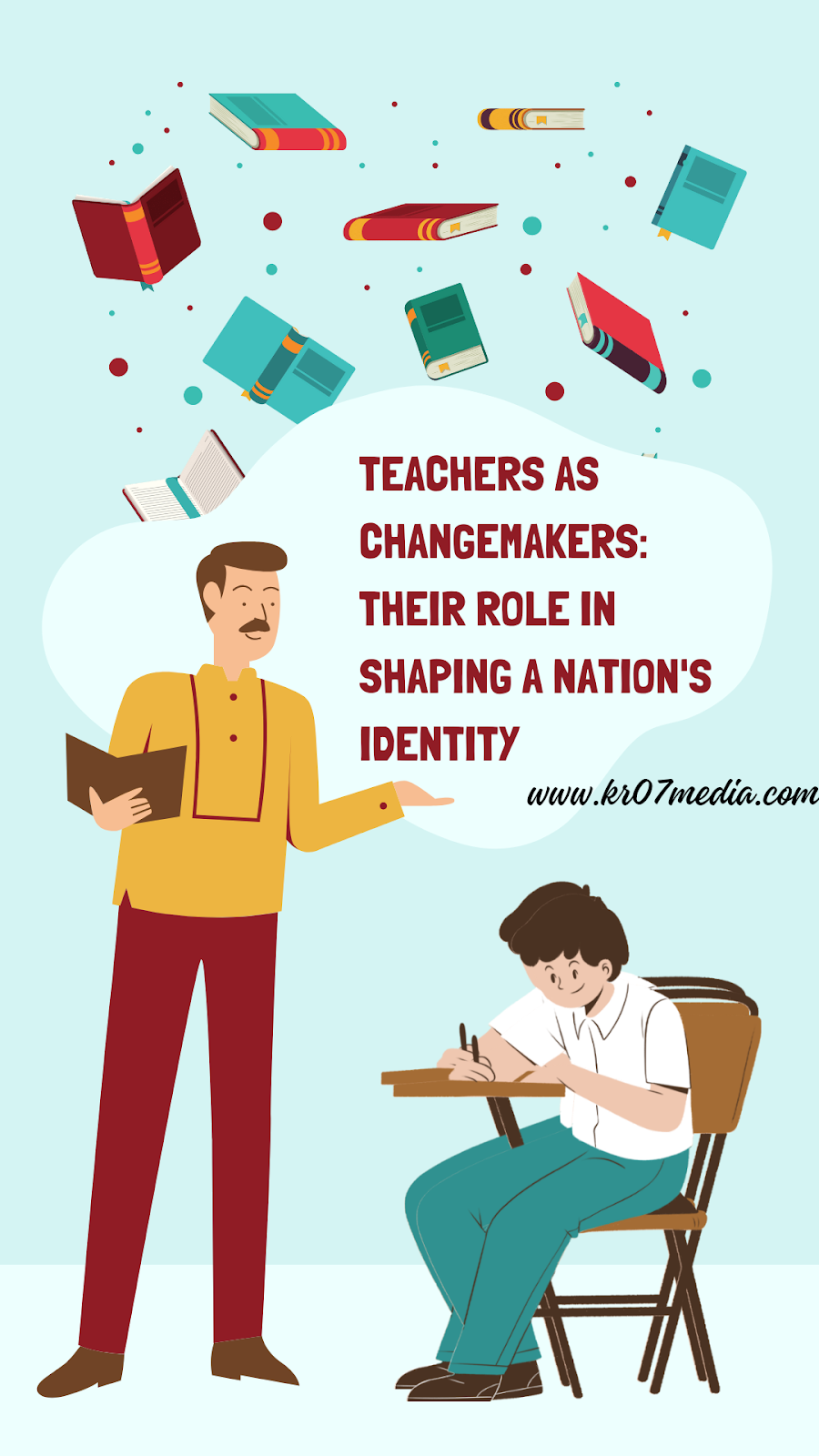Teachers are more than just facilitators of education; they are the architects of a nation’s future. By shaping young minds, imparting knowledge, and fostering values, teachers contribute significantly to the formation of a nation’s identity. Their influence extends beyond classrooms, playing a critical role in molding citizens who uphold the cultural, social, and ethical foundations of a country.
The Role of Teachers in Nation-Building
A nation’s identity is not just built on borders or laws, but on the character and mindset of its people. Teachers are essential in shaping this character from a young age. They are responsible for instilling a sense of national pride, civic responsibility, and a commitment to the collective good in students. Through their guidance, they inspire the future generation to contribute positively to society and become responsible citizens.
Education is often seen as the most powerful tool for social change, and teachers are at the heart of this process. In societies facing inequality, poverty, or discrimination, teachers can be the changemakers who help break these cycles. By promoting critical thinking, empathy, and fairness, they can challenge societal norms that perpetuate injustice, thereby fostering a more inclusive and equitable identity for the nation.
Shaping Cultural and Moral Values
Teachers are instrumental in transmitting cultural heritage and preserving national values. Through literature, history, and the arts, they provide students with a sense of identity and belonging. They help students appreciate their country’s traditions and achievements, while also encouraging respect for diversity and global perspectives. This balance between national pride and global awareness is crucial in today’s interconnected world.
Moreover, teachers are key in shaping the moral compass of a society. In their classrooms, they foster respect, tolerance, and cooperation—values that are vital for a cohesive and peaceful society. A nation’s identity is deeply rooted in these shared values, which help create a sense of unity and common purpose among its citizens.
Teachers as Innovators and Leaders
In the 21st century, the role of teachers has expanded beyond traditional instruction. They are now seen as innovators who must adapt to new technologies, methods, and challenges. Whether it's incorporating digital learning tools or teaching students how to think critically in an age of information overload, teachers are at the forefront of preparing a nation for future challenges.
In many ways, teachers are also community leaders. They often engage with parents, policymakers, and local communities to address societal issues and advocate for improvements in education. By doing so, they help shape policies that impact not just the education system, but the very fabric of society. Their leadership extends beyond the classroom, influencing societal change on multiple levels.
Teachers as Role Models
Students often look up to their teachers as role models, absorbing not only academic lessons but also values and behaviors. A teacher’s attitude towards work, ethics, and social issues can leave a lasting impression on students, influencing how they perceive the world and their place in it. Teachers who demonstrate integrity, perseverance, and empathy serve as living examples of how individuals can contribute positively to society.
By embodying these qualities, teachers inspire students to aspire to roles that benefit the nation—whether it’s in public service, social activism, or entrepreneurship. This ripple effect of influence helps build a nation’s identity based on shared responsibility, cooperation, and a drive for collective progress.
Conclusion
Teachers are changemakers in the truest sense. Through their dedication, creativity, and leadership, they play a fundamental role in shaping not only the individuals they teach but the nation as a whole. By nurturing informed, responsible, and compassionate citizens, teachers lay the foundation for a nation's identity, rooted in values of unity, justice, and progress. Their role is indispensable in the continuous evolution of society and the development of a nation's character in a globalized world.



